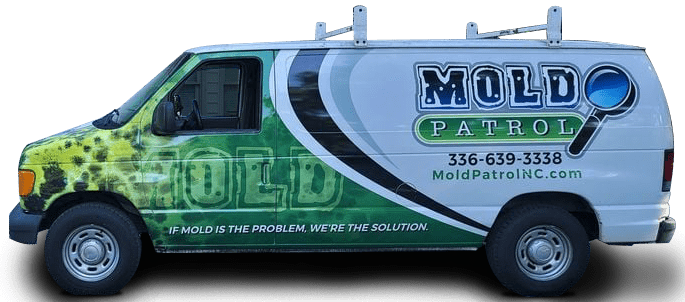The Basics of Mold Allergies
The primary symptoms of the symptoms of mold allergy can vary from person to person and are often difficult to distinguish from those of respiratory diseases, or even typical cold. For this reason, it is crucial to know the way that mold allergies work. Find out more about the signs of allergies to mold.
The spores of mold can be an environmental allergen
Mold spores can cause allergic reactions and can even cause asthma attacks. They interact with other pollutants and volatile chemicals that are in the air that can trigger these symptoms. Allergy sufferers need medical attention as soon as possible if they notice their symptoms becoming worse.
Although everyone is susceptible for allergic reactions to mold, some people may be more sensitive than others. People who are more sensitive to an immune system that is weak or have a history of allergies or chronic obstructive lung illness, or are in humid environments.
In addition to a skin test, doctors can also do blood tests to find out if an individual is allergic to specific types of mold. The results of these tests can be used to make an assessment of the costs and difficulty of remediation of the indoor setting. Medical professionals will also take into account the history of health conditions of the patient and the kind of workplace they work engaged in, the type of hobbies they engage in or other actions that expose the patient to mold, and other elements.
Molds are microscopic fungi that thrive indoors and out. They thrive in moist, warm environments and spread throughout the air. While some individuals might be allergic to a particular type of mold, others might be sensitive to any type of mold. The severity of the mold allergy can range from mild to severe.
Without proper sanitation, mold spores are able to cause respiratory ailments and skin irritations. They are also an important contamination in food products. Allergy sufferers should stay clear of coming into contact with the molds.
They can lead to lung infections.
If you reside in an area where there is significant amount of mold, you are susceptible to developing lung infections or mold allergies. The presence of mold allergies can cause lung inflammation and interfere with normal lung function. In the end, there could be respiratory symptoms such as shortness of breath, coughing, and wheezing. Some people may even develop asthma. If you are experiencing or experience any of these symptoms, you must see a doctor immediately.
If you think that you may have allergies to mold, you should see an expert for a thorough diagnosis. Your doctor will examine the medical records of your patients and ask about the symptoms you are experiencing. When your immune system appears weak , or if you have any other respiratory issues The doctor may conclude that you are suffering from ABPA. Doctors may also collect a sample of lung tissue or liquid to test. Additionally, your doctor may conduct the blood test to check to detect fungal spores.
The people who suffer from mold allergies may suffer from a variety of respiratory issues, including an asthmatic or pneumonia. While some people experience an immediate reaction to mold spores. Others will take a couple of days to fully develop an allergic reaction. In certain instances, exposure to mold spores could cause allergic asthma. This occurs when your immune system reacts too strongly to the spores.
The symptoms of mold exposure can be similar to the symptoms of a flu, cold as well as asthma and pneumonia, but a medical professional can distinguish between them. The first step in treating the symptoms of a mold allergy is to minimize the amount of exposure you have to the chemical. If you suspect you may have an allergy to mold and your doctor suggests treatment that reduces how much you are exposed to allergens.
They could cause asthma
For those with a history of asthmatics can be triggered by mold allergies. attacks. Molds are common indoor fungi that thrive in dark, moist conditions. Some molds do not cause allergic reactions, though. Anyone who spends a considerable period of time at work or living in areas that have excessive mold could be at a greater risk of developing allergic reactions.
The people who suffer from mold allergies experience less lung function, more hospitalizations, and more asthma-related illness than people who have other allergies. The immune system views mold spores as threats and reacts by boosting mucus production and sensitization to allergens. As a result, symptoms are chest pain, shortness of breath, and wheezing.
A blood test can determine whether or not you are intolerant to mold. For a test to determine whether you suffer from a mold allergy the doctor will take samples of your blood and then conduct an allergy-specific IgE antibody test. Results of the tests can help determine most effective treatment. Depending on the severity of your illness and kind of mold, doctors may suggest medication to help combat the symptoms.
In order to reduce the risk of mold-induced asthma, you should try to limit the amount of humidity in your home. Ideally, the humidity are 50 percentage or less. Proper ventilation is also necessary. If the air in your room is moist an exhaust fan can aid in reducing the humidity levels. It's also vital to keep bathrooms clean and dry. In addition wearing a protective mask is advised whenever you're out in the open.
While symptoms of mold allergy can vary from person to person, they are typically similar to symptoms of allergies like hay fever. They include stuffy nose as well as coughing and sneezing. Individuals suffering from mold allergies may suffer these symptoms right away or over a long period of time. If you experience these symptoms throughout the year it's essential to visit an expert to ensure you're not suffering from a more serious disease.
They can trigger anaphylaxis.
Anaphylaxis is a serious medical condition. It can occur if you are allergic to mold or other allergens. You might be able to detect the symptoms quickly or it could take days for symptoms to manifest. If your symptoms last more than a few days it is recommended that you see a physician. Your physician will do various tests to identify your allergies. Skin prick tests or IgE test for antibodies, will test for the presence of specific allergens that are present in your blood. These tests will also help identify an allergic reaction from an infection.
Anaphylaxis is caused by an active immune reaction in response to mold spores. The body reacts by releasing histamine that causes sneezing, watery eyes, and itching. Some people are especially susceptible to mold and suffer symptoms from the moment they come in contact with it. Anaphylaxis is a potentially fatal allergic reaction that needs to be treated immediately.
If you suspect that you may be allergic to mold, make sure to wear a protective gear during cleaning. Wear gloves, goggles and mask to prevent allergic reactions. If you have serious symptoms consult a physician or asthma nurse for help. Antihistamines prescribed by your doctor can aid. If your symptoms worsen then you need to seek an allergy shot.
Anaphylaxis can be a life-threatening allergic reaction that can affect the entire body. It can happen whenever you're exposed to an allergen, like a bee sting. When the reaction is severe it can cause your airway to be blocked. There may be loud breathing or hoarseness.
People who are allergic to mold can experience different symptoms based on the severity or severity. Some mild symptoms include a runny nose and congestion. If, however, you're exposed to high levels of mold, your symptoms may be more serious. Some people may even develop pneumonia.
They can be treated by immunotherapy
Fortunately, immunotherapy can be a great way to treat mold allergies. Allergists employ clinically validated tests to identify the specific mold allergen responsible for your reactions. These tests evaluate the quantity of IgE antibodies that are specific for an allergen. By targeting these antibodies, doctors can create a successful treatment program.
While mold allergies affect almost everybody, people with weak immune systems are at a higher likelihood of developing these. The affected individuals might be suffering from respiratory ailments such as asthma or chronic obstructive pulmonary disease. In addition, they might reside in an environment that is humid and work in an area that has a lot of humidity, or be subjected to mold on an everyday routine.
The efficacy of this treatment is contingent on a variety of aspects. First, patients should be properly informed and aware of the nature of their disease. They should be made aware that it can last for a long time, and that they should work with their doctors to learn how to manage the symptoms. Additionally, it is crucial to recognize that the patient's cooperation is crucial for successful treatment. Therefore, it is recommended to supply patients with informational books and pamphlets on mold allergies.
The goal of immunotherapy is to induce an immune response to a specific allergen. This is achieved through injections which contain the allergen. The allergist starts with a very low dose and increases it gradually until the patient develops resistance against the allergy. This process is known as the build-up phase. During the build-up phase, the allergen is introduced slowly into the body. it is hoped that this will strengthen the immune system and desensitize them to the allergy. After this has been achieved then the patient can begin the maintenance phase, which is typically between two and four weeks between injections.
Allergy immunotherapy can be best administered by doctors who are certified. But, it's important to ensure that you choose a trusted allergist. Moreover, your doctor should be able identify which allergens are causing the symptoms. A reliable allergy test is essential to determine which allergens are the best potential candidates for immunotherapy.
|
Phone +13366393338
|
|
| Address: 4175 Burch Bridge Rd, Burlington, NC 27217, United States |
https://moldpatrolnc.com/cost-of-mold-remediation-and-methods-of-remediation/
https://moldpatrolnc.com/mold-removing-companies-near-me/
https://moldpatrolnc.com/mold-services-near-me/
https://moldpatrolnc.com/why-you-should-hire-a-mold-specialist-near-you/

